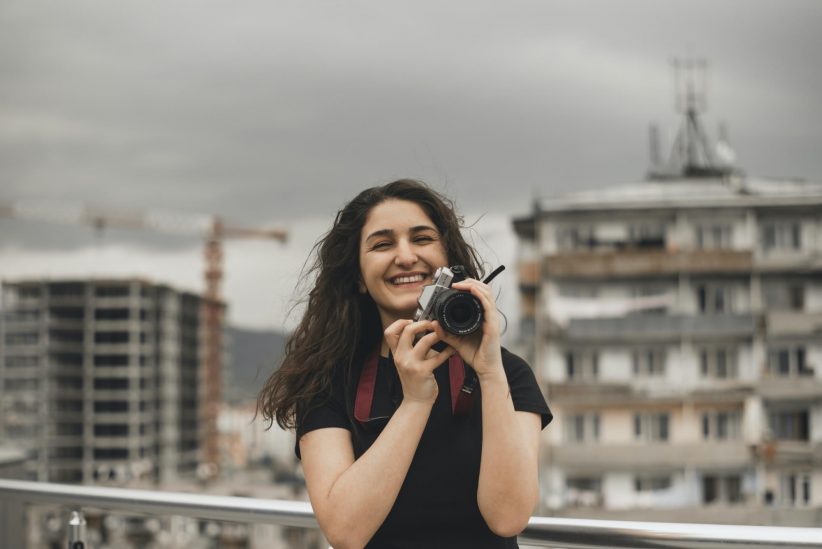The war does not end. The death toll keeps growing, mothers keep living without news from their sons, nurses and doctors don’t sleep day and night…. The only thing I can do amid this chaos is to feed the fish. Unfortunately, I only have enough strength and energy to keep them from starving.
When I bought these fish, I was told in the store that I had to feed them 6 days a week. That is, every day, except for one. But I feed them every day, because I’m afraid that tomorrow something may happen and I won’t be able to feed them. Let that day be their fasting day, so that they don’t stay unfed two days in a row.
The worst thing we go through right now is normalization. We have been getting used to the war. This is utterly unfair. I remember when the elders talked about the first Artsakh (Karabakh) war, they used to say, “You know? We got used to living in war. It’s as if our heart had turned into stone. We heard new names of the fallen each day, it was sad, but it seemed that there were no tears left. We had wept them all out.” I’m afraid that soon we’ll turn into the same stones. Or maybe partially, we have already become.
I’ve already told you about my friends – children from the shelter. Once when I was there with them, we heard some sounds. Someone said it might have been a tornado. And little Marat (he is maybe five or six) said, “No, this is not a tornado, this is a drone.” I don’t know if he was right or not, but that upset me. Children should not be able to distinguish between the sounds of weapons. They just shouldn’t. They should go to school, play hide-and-seek, ride a bike, fall off it sometimes. Not to distinguish the sounds of bombs. It feels infinitely sad.
Do you know how many children are deprived of the right to study in Artsakh? More than 20,000. That’s how many kids miss school every day. Not because they are lazy, but because of the war. This injustice makes me want to shout out loud from the top of the Hunot Canyon (Jdyrdyuz) in Shushi.
Flashbacks from the first war are constantly in my head. I’ll tell you one story about my father. My father is a veteran of the first war. When he was about to leave for his last battle, my mom was pregnant with me. His good friends, who were several years older than him, approached my crying grandmother and said, “Mrs. Angela, don’t worry, he’ll return safe and sound. We promise! Even if we have to pay with our lives, we will bring him back. ” (By the way, I was named after my grandmother – Angelica. For those who don’t know, this is my full name).
On January 30, there was their battle. They stood side by side – so faithful, so real. A shell exploded… When my father regained consciousness he saw his friends near him, or shall I say he saw parts of their bodies… They had covered him and saved him, at the cost of their own lives. My father became disabled. The fragments hit his face, his eye. He was taken to Yerevan for surgery. One eye was lost forever, but the other was fine, and doctors could not understand how. Amid this, I was born, on February 19.
I also had some vision problems. I don’t remember exactly when it started, but I realized it at school, when I was moved from the 4th row to the first. When I was 10, I went to Russia with my family for a wedding. There were some gypsies next to the church. One gypsy woman approached me and asked, “Would you like me to read your fortune?” I shook my head and walked away. “Do you have problems with your eyesight?” I think it was obvious since I squinted all the time. I stopped. She came closer. “When you were born, you gave half of your vision to a very close person. That’s the reason,” she said and left.
A few years later, my dad and I went to the doctor together to test our eyesight and get new glasses. When we had our eyes checked, it turned out that I don’t see exactly the same percentage as him.
I told my family and we were stunned. I don’t know what to think, but to be honest, I believe in magic. Therefore, it was possible in our case! These are the stories of the first war.
Also Read: In a Bombed-Out Church, Karabakh Soldier Leaves the Battlefield to Marry Sweetheart
















